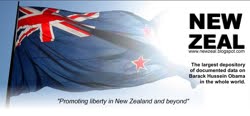skip to main |
skip to sidebar
Recently, a religion column in the Kentucky Enquirer, Faith Matters, wrote about some Covington, Kentucky churches that planned on inviting some Muslim representatives to read passages from the Qur'an to their Christian congregation. Last week, the Hartford, Connecticut Courant newspaper reported that the City Council planned to have a local Muslim cleric open the council meetings with a Muslim invocation. Strangely enough, while the good Christian population in Northern Kentucky remained quiet over this rather extreme example of diversity going on in their places of worship, the people in Hartford created an uproar of protest that forced the City Council to back down from their plan. At least some people in America have become suspicious of the bad intentions to spread the deceiving words of hate contained with the Muslim holy book. And someone even observed the contradiction between the fact that the Qur'an calls for the death penalty for homosexuals and some Protestant denominations having gay clergy, how could they read just a few carefully selected verses.
There is only one version of the Qur’an. The Qur’an is the same book used in Saudi Arabia and Iran and Indonesia and in every other Muslim country as it is in America. There is no old version or new version or King James version. There is no English version used in any mosque, all prayers in mosques are recited in Arabic. The Qur’an is the same unchanged version that has existed since the dark ages, 1400 years ago, when it was written.
While the so-called prayers contained in the Qur’an consist merely of verses recited at mosques in America, those same prayers are the Constitution and Laws of many Islamic countries, Saudi Arabia in particular. Because the political side of Islam is the extremely barbaric Islamic Sharia Law. Those verses in the Qur'an are the commands of the Prophet Muhammad to be followed without exception or question.
While some progressively liberal churches in America have begun to push diversity on their congregations and have instituted prayer sessions with Muslim clerics reading passages from the Qur’an, you can be sure there is no reciprocity going on in any mosques, anywhere. Why? Because it is against Islamic Sharia Law to permit proselytizing (the preaching of any other religion) at any Muslim assembly. Not only is it forbidden to read passages from the Christian Holy Bible in any mosque, it is forbidden to allow any non-Muslim to enter the Islamic holy cities of Mecca and Medina in Saudi Arabia. It is also against the law in Saudi Arabia to carry a rosary or cross or bible in public. And the penalty for doing so is not just a slap on the wrist. Read the last paragraph of the following warning to American tourists to Saudi Arabia issued by the U.S. State Dept.
U.S. State Department web site advisory
Standards of Conduct and Religious Police: Islam is the official religion of the country and pervades all aspects of life in Saudi Arabia. Public display of non-Islamic religious articles such as crosses and Bibles is not permitted. Travel to Makkah (Mecca) and Medina, the cities where the two holiest mosques of Islam are located, is forbidden to non-Muslims.
The norms for public behavior in Saudi Arabia are extremely conservative, and religious police, known as Mutawwa, are charged with enforcing these standards. Mutawwa are required to carry special identification and usually are accompanied by uniformed police; however, in some cases they have detained persons even without police presence. To ensure that conservative standards of conduct are observed, the Saudi religious police have accosted or arrested foreigners, including U.S. citizens, for improper dress or other alleged infractions, such as consumption of alcohol or association by a female with a male to whom she is not related. While most incidents have resulted only in inconvenience or embarrassment, the potential exists for an individual to be physically harmed or deported. U.S. citizens who are involved in an incident with the Mutawwa should report the incident to the U.S. Embassy in Riyadh or the U.S. Consulates General in Jeddah or Dhahran.
The Saudi Embassy in Washington advises women traveling to Saudi Arabia to dress in a conservative fashion in public, wearing ankle-length dresses with long sleeves and not pants. In many areas of Saudi Arabia, particularly Riyadh and the central part of the Kingdom, Mutawwa pressure women to wear a full-length black covering known as an Abaya, and to cover their heads. Most women in these areas therefore wear an Abaya and carry a headscarf to avoid being accosted. Women who appear to be of Arab or Asian origin, especially those presumed to be Muslims, face a greater risk of being confronted.
Some Mutawwa try to enforce the rule that men and women who are beyond childhood years may not mingle in public unless they are family or close relatives. Mutawwa may ask to see proof that a couple is married or related. Women who are arrested for socializing with a man who is not a relative may be charged with prostitution. Some restaurants, particularly fast-food outlets, have refused to serve women who are not accompanied by a close male relative. In addition, many restaurants no longer have a "family section" in which women are permitted to eat. These restrictions are not always posted, and in some cases women violating this policy have been arrested. This is more common in Riyadh and the more conservative central Nejd region.
In public, dancing, playing music, and showing movies are forbidden.
CRIMINAL PENALTIES: While in a foreign country, a U.S. citizen is subject to that country's laws and regulations ….Persons violating Saudi Arabian laws, even unknowingly, may be expelled, arrested, imprisoned or even executed. Saudi authorities do not permit criticism of Islam or the royal family. The government prohibits the public practice of religions other than Islam.
That's right, Executed. The U.S. State Dept. says it. So much for diversity. You cannot negotiate or bargain with a hungry lion that wants to devour you. The only difference between Muslim behavior in America and in Europe and in the Middle East is in the percentages of their population. When Muslims gain a large enough population they begin to demand the use of their own Sharia Law to replace civil law. In American cities with significant Muslim populations such as Dearborn, Michigan the practice of Sharia Law has already begun. Christian workers there were recently arrested on public property for handing out pamphlets while Muslims were allowed to do the same at a city fair.






















No comments:
Post a Comment
No foreign language comments allowed. English only. If you cannot access the comments window send me an email at Oldironsides@fuse.net.